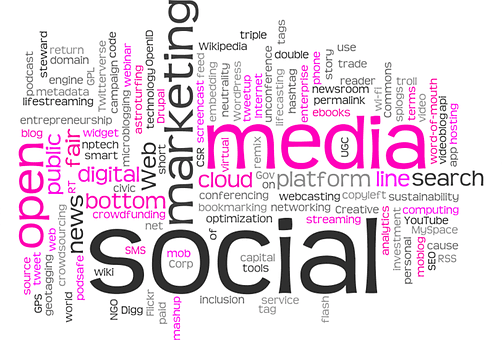How Content Marketing Fits Into Web 3.0 (You Might Be Surprised)
Curated from: contentmarketinginstitute.com
Ideas, facts & insights covering these topics:
6 ideas
·546 reads
3
Explore the World's Best Ideas
Join today and uncover 100+ curated journeys from 50+ topics. Unlock access to our mobile app with extensive features.
Content marketing history
In the early days of modern content marketing (2008/2009), the content approach to marketing found fertile soil.
The old content marketing was found in loyalty magazines, employee engagement magazines, and content on how to use innovative products, such as Jell-O's recipe book.
In the early 2000s, content marketing became a continued strategic business function. The trigger was the expansion of Web 1.0 technology - web search.
16
147 reads
Web 3.0 isn’t new - it's just time
Early concepts of the metaverse date back to the early 2000s. The marketing hype around virtual currencies goes back to 1999 with Beenz and Flooz.
- Beenz positioned itself as "the web's currency". The site paid people in Beenz for viewing ads or signing up for a service.
- Flooz, a virtual currency startup, used its internet currency as a loyalty program to internet merchants.
Web 3.0 concepts in the early 2020s are like content marketing concepts in the early 2000s. These concepts aren't new, but they may transform into solid business strategies.
14
89 reads
Web 3.0 opportunities for content marketers
Web 3.0 technologies will impact the way consumers experience, consume, transact, and behave. But it is very early days.
Web 3.0's first iterations are about how people gain and share content, join virtual communities and create customer experiences.
In marketing, we may see the introduction of immersive participation and intelligent peer-to-peer transactions with a shift in allowing consumers to control their personal data.
This means content-driven marketing experiences might evolve to where consumers control the connection. Retaining the relationship would require delivering great value.
15
79 reads
How blockchain fits into content marketing
Blockchain technology enables these new decentralized capabilities for new customer experiences and supports direct peer-to-peer transactions without a centralized service provider.
Decentralized content, marketing, and advertising will change the digital relationship between customers and businesses. This is called tokenized customer experience or tokenized CX.
14
86 reads
Tokenized CX is just content marketing evolved
Marketers may soon be able to issue "tokens" (or smart contracts) powered by blockchain technology to enable more automated, secure, and trusted customer experiences.
These tokens can enable any transaction involving digital artefacts (including ads, downloadable assets, subscriptions, or access to communities) and empower consumers to help shape their experience.
They also enable marketers to develop more creative content and marketing experiences, meaning the scope is largely a content marketing approach.
14
66 reads
Tomorrow’s content marketing and Web 3.0
The early days of Web 1.0 were all about FINDING pages, blog posts, and downloads of documents, meaning marketers needed to focus on publishing content.
Web 2.0 pushed marketers to create responsive (and contextual) approaches so that customers could EXPERIENCE something better. But along the way, the focus shifted from creating findable content to finding intent signals that marketers used.
As data becomes more precious, things will change again. If it continues to develop as expected, the promise of marketing in Web3.0 is to help customers CREATE something better.
16
79 reads
IDEAS CURATED BY
For every question, there is an answer. For every problem, there is a solution. For everything else, there is an explanation.
CURATOR'S NOTE
Web3 and content marketing as a business strategy.
“
Ryker 's ideas are part of this journey:
Learn more about business with this collection
The value of hard work and persistence
How to stay focused on long-term goals
How to learn from failures and setbacks
Related collections
Similar ideas
Read & Learn
20x Faster
without
deepstash
with
deepstash
with
deepstash
Personalized microlearning
—
100+ Learning Journeys
—
Access to 200,000+ ideas
—
Access to the mobile app
—
Unlimited idea saving
—
—
Unlimited history
—
—
Unlimited listening to ideas
—
—
Downloading & offline access
—
—
Supercharge your mind with one idea per day
Enter your email and spend 1 minute every day to learn something new.
I agree to receive email updates




